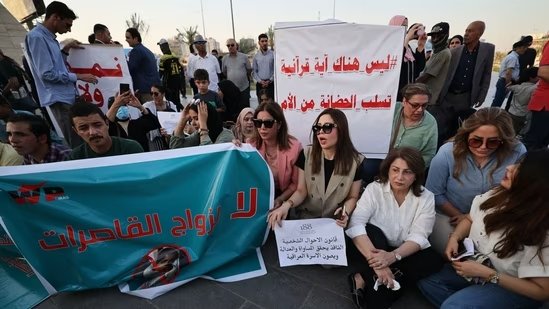A proposed bill in Iraq’s parliament has aroused considerable controversy and alarm, as it proposes to cut the legal marriage age for females to nine years old. The Iraq Justice Ministry has submitted controversial legislation aimed at amending the country’s Personal Status Law, which presently sets the marriage age at 18.
The law would allow citizens to choose between religious authorities and the civil judiciary in family matters. Critics fear that this may result in a reduction of rights in inheritance, divorce, and child custody.
Proposed bill raises concerns about rising child marriage
If implemented, the bill would allow girls as young as nine and boys as young as fifteen to marry, raising concerns about rising child marriage and exploitation. Critics fear that this regressive action will undo decades of progress toward women’s rights and gender equality.
Also read: Sheikh Hasina will return to Bangladesh for elections, claims son
Human rights organizations strongly oppose the bill
Human rights organizations, women’s groups, and civil society activists have all expressed strong opposition to the bill, saying that it will have major ramifications for young girls’ education, health, and well-being. They suggest that child marriage causes higher dropout rates, early pregnancies, and an increased risk of domestic violence.
According to the United Nations children’s agency, UNICEF, 28 percent of girls in Iraq are already married before the age of 18.
Adding her weight to the opposition, Amal Kabashi of the Iraq Women’s Network said that the amendment “provides huge leeway for male dominance over family issues” in a society that is already heavily conservative.
Also read: Bangladesh violence: Indian visa centres closed indefinitely
Many lawmakers opposed to the planned amendments, therefore parliament removed them in late July. They reappeared at an August 4 session with the support of powerful Shia blocs that control the chamber.
The suggested revisions would represent a departure from the 1959 Act. This statute, passed following the demise of the Iraqi monarchy, moved family law power from religious figures to the state judiciary. The new measure would reinstate the ability to apply religious standards, largely from Shia and Sunni Islam, but makes no mention of other religious or sectarian groups in Iraq’s broad population.














